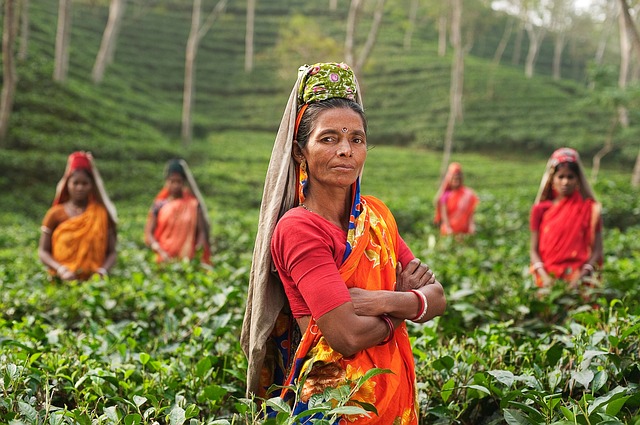April 10, 2017
Social impact, venture capital investor Acumen will be raising a new fund which will focus on the agriculture, water, education, housing, and healthcare sectors in India.
Founded in 2001 by Jacqueline Novogratz with funding from the Rockefeller Foundation, Cisco Systems Foundation, and a field of supporting philanthropic investors, Acumen opened an office in India in 2006. Since its launch, Acumen has made worldwide investments totaling $100 million, and of that total $32 million has been invested in India, making Acumen the largest non-microfinance investor in the country, according to Live Mint.
Historically, Acumen invests in companies that benefit lower income populations and alleviate poverty in East Africa, West Africa, Pakistan, India, and Latin America. Under its investment criteria, the firm makes debt or equity investments of between $250,000 and $3 million in early to mid-stage companies that are on the cusp of scaling up. Each targeted company must have the potential to create a product or deliver a service that addresses a need while generating a social impact that is greater than what could be achieved through charitable activity.
Some of the agricultural investments currently in its portfolio include: Mekelle Farms, the largest producer of day old chicks in Ethiopia; Cacao de Colombia, a producer and marketer of premium chocolate; Wasi Organics, an organic food company that sources its ingredients from Andean small holders; and Sahayog, a dairy company that links small holder dairy farmers with market access, according to the firm’s website.
To date, the firm has raised all of its capital in the U.S., however, building upon its momentum in India, the firm is planning to concentrate its fundraising efforts for its new fund in-country.
“We are going to become more and more focused on India,” Ajit Mahadevan, India director at Acumen told Live Mint. “We have been focused on investing in India, but we will get much deeper in connecting with the right set of people who can further the opportunities for our companies. So we will look at corporate partnerships and raising funds in India.”
Eye on India
Between 1980 and 2012, India’s agricultural gross domestic product (GDP) increased at a rate of 3 percent per year, according to the report, India as an Agriculture and High Value Food Powerhouse: A New Vision for 2030 by McKinsey & Company.
The country’s vast and growing population, combined with increasing affluence and socio-economic shifts, are expected to see the country’s overall food consumption increase by 4 percent per year to 2030, while per capita food consumption is expected to increase by 3 percent per year. Consumption in rural areas is expected to climb by 2.5 percent, while food consumption in urban areas will see double this growth at 5 percent.
Based on these projections, and the expected growth in the country’s agricultural production, processing, and exporting activities, McKinsey foresees India’s agricultural industry growing at a rate of between 5.2 and 5.7 percent over the next two decades.
Given this landscape that is ripe with investment potential, Acumen is taking a more complex and modern approach to its investment strategy.
“Earlier, we did not connect with the Indian corporate system as much as we should have. Today, we realize that many of our companies, through corporate partnerships, can benefit hugely. We now have corporate partnerships with banks and technology firms,” said Mahadevan.
Although Acumen plans to focus on multiple sectors, there will be two constant themes across all investments – technology and financing.
“Across the four sectors we work in, we will look at these two enabling themes, because on the back of that you can create accelerated impact,” Mahadevan told Live Mint.
Last year through October private equity investments into India’s food and agribusiness sectors took a turn for the worse, totaling $250 million across 62 deals compared with $1.15 billion across 153 deals in the year-ago period, as GAI News previously reported.
Nonetheless, there is a buzz surrounding further capital commitments for India’s ag-tech sector. For instance, Agrostar, a Maharashtra-based technology platform for farmers to purchase crop inputs via a mobile app, is reportedly near to securing between $10 and $12 million from Accel India, according to India’s Economic Times. Supply-chain ag-tech startup Crofarm is similarly looking to raise approximately $7 million this year to support farmers in delivering their produce beyond India’s financial and technology hubs.
Meanwhile, India’s Prime Minister Narendra Modi said last year that the implementation of agtech for Indian farmers could “double farmers’ income by 2020,” reports indicate.
This potential was echoed by founder and CEO of EM3 AgriServices, Rohtash Mal in an interview with GAI News last year.
“The first challenge for Indian agriculture is the challenge of under-productivity,” Mal told GAI News. “We have the world’s most fertile lands at our command. However, we don’t have the ability to reach the farmer with mechanization and technology – that’s the real gap. We have the best sun, the best water and the best soil, yet our productivity, on an average across crops, is only 20 percent of global benchmarks. So, whether it’s wheat where we are at 33 percent of productivity, or tomatoes where we are at an abysmal low of only 3 percent of global standards, the first big challenge is of raising productivity and that can only happen if you get technology and mechanization to the soil.”
-Lynda Kiernan
Lynda Kiernan is Editor with GAI Media and daily contributor to GAI News. If you would like to submit a contribution for consideration please contact Ms. Kiernan at lkiernan@globalaginvesting.com.

Let GAI News inform your engagement in the agriculture sector.
GAI News provides crucial and timely news and insight to help you stay ahead of critical agricultural trends through free delivery of two weekly newsletters, Ag Investing Weekly and AgTech Intel.




